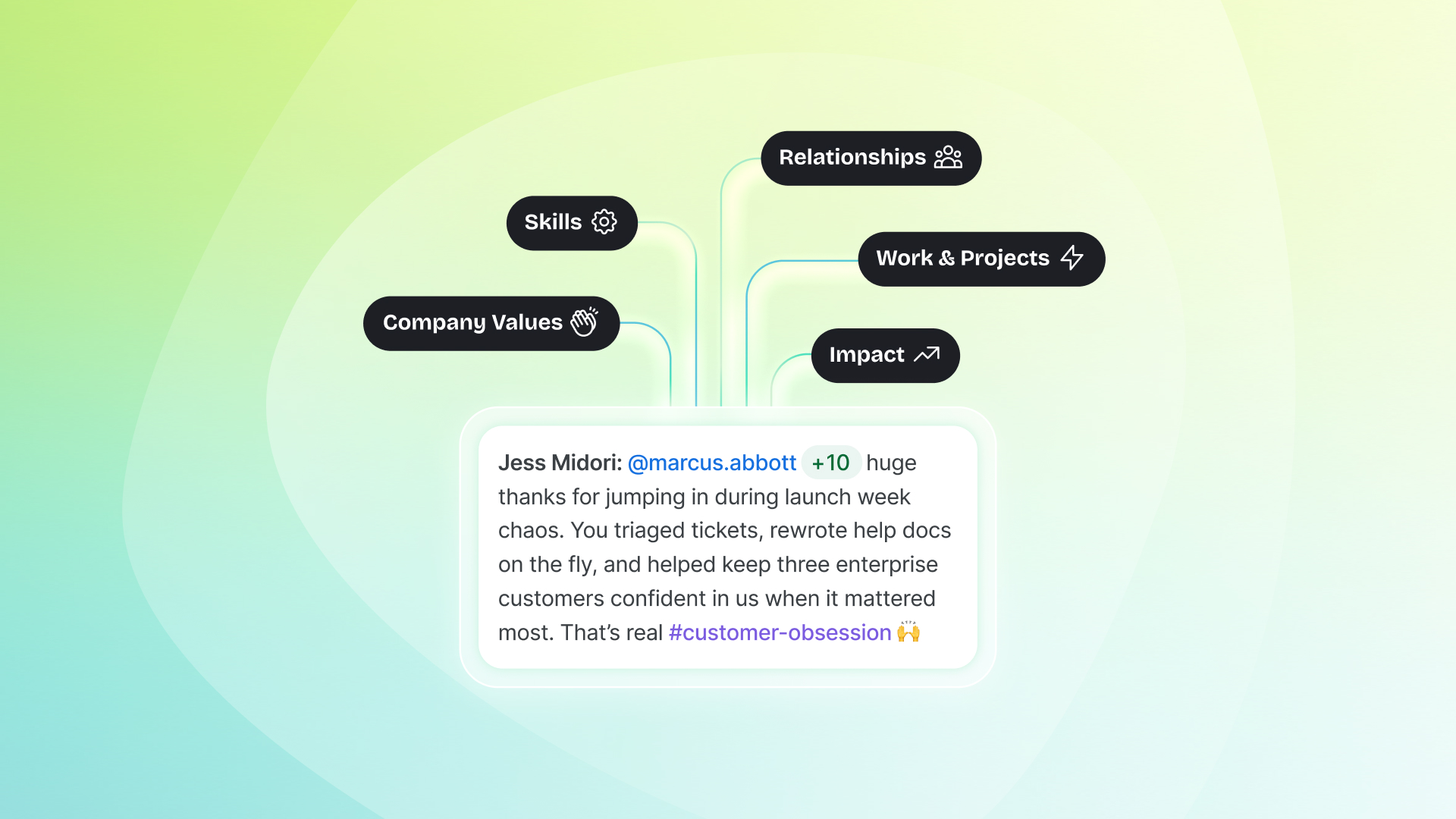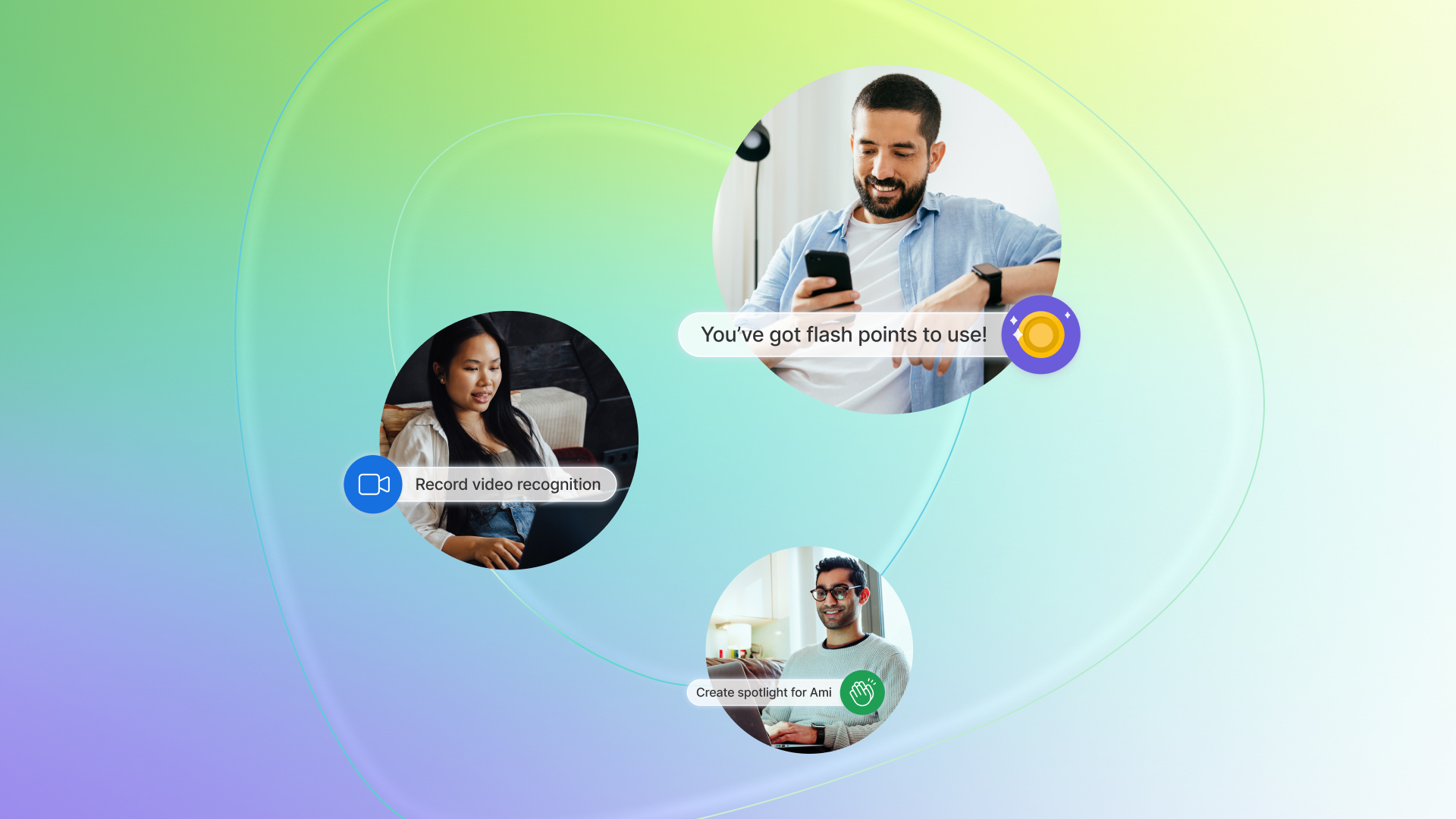Finding Purpose at Work

Purpose is one of the key drivers of employee engagement, and finding it can spark a transformative experience. ⚡
We were lucky enough to meet with Arthur Woods, Co-founder of Imperative, who shared his insights on understanding and finding purpose at work.
Want our newest blog posts straight in your inbox? Sign up for our bi-weekly newsletter!
Purposeful work is for everyone
Imperative's mission is to transform work by empowering everyone to work with purpose. According to Woods, Imperative's research revealed that so-called purpose professions aren't exclusive to any particular type of work.
Many myths about work say that the only way you can experience purpose is to find a cause or work in a certain profession, like healthcare education or sustainability. However, there are countless nonprofits where employees are not fulfilled, and there are countless corporations that have nothing to do with a benevolent mission, but whose people are fulfilled.
Woods explained that this points to an intrinsic need that has less to do with the content or category of your work and much more to do with who you are, how you see work, and how much fulfillment you experience.
We find that purpose is derived from your relationships, your sense of impact, and your sense of personal growth. If you think about it, those three things are possible in any job. Anyone can build deep, nourishing relationships; anyone can feel like their work matters, and anyone can push themselves to develop in any setting.
The purpose-driven generation
Though anyone can find purpose in their work, research has shown that purpose is particularly important to millennials.
I think the millennial generation—for a number of reasons—looks at work very differently than their parents. One reason being that millennials grew up with technology in their hands. The idea of your personal brand and your ability to self express became a major, major imperative out of the gate.
He said that a sense of self-awareness and the idea of "building your own creation" were instilled in this generation—and a sense of impatience.
Millennials don't want to wait to experience fulfillment.
In many ways, we looked at work in previous generations as a means to an end, a means to retirement, a means to have the life that you one day wanted to have.
Woods said that for the millennial generation, work is no longer the means to an end—it has become the end itself.
This means that work people are doing every day needs to be fulfilling, and needs to be enriching. And if it's not, something needs to change. That's where I think we have a tremendous opportunity. This generation is putting pressure on the workforce to be something that is delivering purpose right away.
Woods explained that the average millennial doesn't want to feel different in work than they do outside of work.
Friends and colleagues become blurred. The idea of having money outside of work to do things that you want to do: perhaps you're able to do the things that you want to do within your work today. That blur of what has been a very segmented approach is becoming much more integrated.
Woods also noted that the average millennial seeks the intrinsic value work creates — more than pay, promotions, or reputation.
We really believe the ability to measure that intrinsic value and manage to it as a company is a secret weapon. At Imperative, we're designing the first tools and platforms to manage intrinsic motivation everyday.
Purposeful work in action
Woods shared how West Elm has helped its employees find purpose by reframing their jobs.
They've enabled a process called job tailoring, which is actually helping employees manage changes to improve the way they work, to make it more fulfilling. Retail employees aren't just selling furniture; they're serving as ambassadors for new people to move into a city and feel welcomed.
Woods explained that West Elm uses Imperative's diagnostic and assessment tools across the company to regularly measure how fulfilled their employees are and what intrinsically drives each one.
From employee empowerment all the way to performance management, West Elm has made a seismic shift in the way they are approaching this problem.
The ultimate power of purpose
Increasing employee engagement consistently ranks as a top priority, and instilling a sense of fulfillment is a key factor in doing just that. As important as purposeful work is to the workplace, the benefits extend beyond the nine-to-five.
According to Woods, people who experience fulfillment in their work:
- Have a better work-life balance
- Are healthier inside and outside of work
- Are more active members of society
- Are more involved in their communities
I think purposeful work provides benefits beyond the job itself," Woods said. "We really believe that if we help make employees more fulfilled in their day-to-day jobs, they'll ultimately become better members of society.
How to inspire a greater sense of purpose
Woods offered simple advice to employers seeking to inspire a greater sense of purpose in their employees' work:
- Acknowledge that purpose is possible for anyone
- Capture and manage metrics
- Identify the purpose-driven individuals in your organization
We really believe there's this whole new archetype that companies can start to screen for, manage to, and propel in the organization every day. That's a huge opportunity for companies.
Find a greater sense of purpose in your own work
Woods also offered this advice to anyone trying to find purpose in their work: the grass isn't always greener on the other side; it's greenest where you water it.
A lot of people believe if they're unfulfilled, the first thing they need to do is go find a new job. Purpose is possible in any job, and the ball is in your court. As an employee, you're in the driver's seat. Your company, we hope, is in the passenger seat helping you navigate, but you're the one primarily able to control your destination.
If you're struggling with fulfillment, challenge yourself by asking:
- How can I improve my relationships?
- How can I make more of an impact in this work every day?
- How can I push myself to grow more?
If you're asking those questions, that's really where your work starts to become more fulfilling; where you're starting to manage what gives you purpose every day, and identifying the experiences you can create for yourself so that you have a sense of fulfillment.
Are you and your team inspired by a sense of purpose in your work? How are you working to make your contributions more purposeful? Let us know in the comments below, and check out this awesome engagement resource 👇







